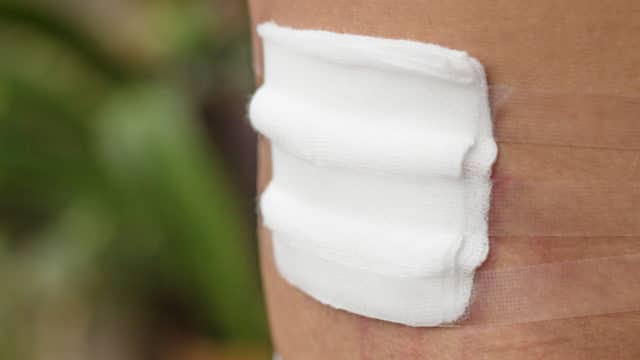Elevated Blood Sugars: How Do They Affect Wound Healing?

Constant high blood sugar levels can cause your wounds to heal slowly. It can also cause your wound to not heal.
Monitor and control your blood sugar. This is one of the most important things you can do to heal your wound.
Work closely with your doctor to heal your wound as quickly as possible. It can also decrease possible complications.
Your doctor may ask you to keep track of your blood sugar changes. Check them at home as often as you doctor has asked you to. You may want to write down your blood sugar results. This will tell you what your blood sugar level is at any one time.
How Can I Tell How Well I am Doing with Managing My Diabetes?
An HbA1C (estimated glucose average) will give you an idea of how well your blood sugar was controlled over the last three months. It shows you and your doctor how well your diabetes treatment plan is working. A goal HbA1c number for most people is 6%. Your risk for complications increase with every 1% above the goal of 6%.
What Can Consistently High Blood Sugar Levels Lead to?
- Skin problems
- Difficulty fighting infections
- Nerve damage
- Clogged arteries
- A wound that does not heal
- A wound that heals slowly
- Amputation
What Can I Do?
- Use your diabetes meal plan. Eat healthy foods including those with less fat and salt and more fiber.
- Get 30 to 60 minutes of physical activity on most days of the week.
- Stay at a healthy weight.
- Learn to cope with stress. Stress can raise your blood sugars.
- Stop smoking or reduce smoking as much as you can.
- Take medicines as prescribed even when you feel good.
- Check your blood sugar when your doctor has told you to.
- Control your blood sugar level.
- Take good care of yourself to try to avoid long term diabetic problems.



